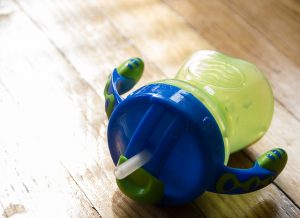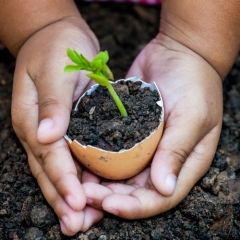
What do sippy cups have to do with STEM learning?
Definitely more than you might think, says Elisabeth McClure, recent Cooney Center fellow and lead author of STEM Starts Early, a 2017 report produced by New America and the Cooney Center.
Every day, early learners lay groundwork for more advanced science, technology, engineering, and math skills by engaging in impromptu experiments through trial-and-error interactions with the objects around them. Enter the sippy cup: a notoriously gravity-prone accessory that’s front and center in the daily life (and experimentation processes) of many toddlers.
To find out more about how young learners explore the world around them—and learn how to support their natural curiosity—read McClure’s new article in Scientific American: “High Chair Philosophers.”




